Disarming the Suicidal Mind -Evidence-Based Assessment and Intervention – Timothy Spruill
Original price was: $219.99.$61.00Current price is: $61.00.
Disarming the Suicidal Mind -Evidence-Based Assessment and Intervention – Timothy Spruill has the same quality as the author’s salapage.
Salepage link: At HERE. Archive:
- Faculty:
- Timothy Spruill
- Duration:
- 6 Hours 21 Minutes
- Format:
- Audio and Video
- Copyright:
- Aug 27, 2018
Description
From Triage to Tomorrow Suicide deaths have increased dramatically in recent years to 40,000 Americans annually, a leap that has been attributed variously to the Great Recession, wars in Iraq and Afghanistan, and access to guns and prescription pain killers – but what about medical error? Thirty-nine percent of suicide completers have been seen in an ER within the past year (many for mental health complaints and self-harm), while 59% of ER patients with injuries from deliberate self-harm do not receive a psychiatric assessment. Despite these trends, graduate training in assessment of imminent self-harm is often limited, offering little practical experience in counseling labs due to intake policies designed to avoid liability.
This recording offers a revealing look inside the complex and rapidly expanding knowledge-base concerning the epidemiology of suicide and self-harm, while exploring the most effective measures you can take to save your patients’ lives. Learn to recognize risk factors associated with suicide attempts, as well as long-term and imminent warning signs, and accurately assess self-harm and suicide risk. Discover evidence-based interventions and explore the challenges of treatment across populations, including patients with addictive behaviors. Finally, we will deconstruct the emergency mental health protocols of today and identify common thinking errors leading to diagnostic and intervention mistakes that actually worsen crisis situations.
Handouts
| Manual – Disarming the Suicidal Mind (8.41 MB) | 56 Pages | Available after Purchase |
Outline
INTRODUCTION TO THE GROWING PROBLEM OF SUICIDE IN AMERICA
- Need for concern: statistics revealing the increasing trend in suicidal ideation, attempts, deaths
- National data
- State-specific data
- Career risks for the professional counselor
- Factors contributing to the failure of adequate assessment and triage
- Inadequate training of physicians and professional counselors
- Inadequate funding for mental health (despite numerous parity laws)
- Shifting of the burden of assessment to emergency rooms
- Poorly trained law enforcement officers initiating involuntary admissions
EPIDEMIOLOGY — CONTRIBUTING FACTORS
- Risk factors
- Demographic risk factors (age, gender, ethnicity, etc.)
- Environmental risk factors (adverse childhood experiences)
- Addictions
- Mental illness
- Economic risk factors (employment)
- Warning signs
- Feeling alone—isolated from family/friends
- Feeling like a “burden” to others
- Little or no fear of death
- Red herrings
- Suicide notes
- Contingent suicide threats
- Cutting
- Pending divorce
- Limitations of the research and potential risks
ASSESSMENTS/MEASURES TO AID IN DETERMINING RISK LEVEL — A COMPREHENSIVE STRATEGY
- Mental status exam
- Collateral information
- Adults
- Relative lethality of plans/attempt (Risk/Rescue Scale)
- Hopelessness (Beck Hopelessness Inventory)
- Reasons for living (Brief Reasons for Living Scale)
- Adverse childhood experiences (A.C.E. Questionnaire)
- Teens and children
- Predictive/protective factors identified in the research
- Special populations
- Veterans
- LGBT
- Promising, novel methods for assessing risk
- Implicit cognitions—measuring implicit associations with death and suicide
COMMON INTERVENTIONS, MISTAKES, THINKING ERRORS & ETHICAL ISSUES
- Our natural tendencies to err
- Feelings of “rightness” are not reliable indicators
- External factors contributing to errors
- Internal factors contributing to errors
- Self-care is critical
- Two types of thinking (fast and slow)
- Dangers of lazy, “fast” associative thinking
- Substitution of easy-to-answer question for more difficult and complex question
- Type 1 vs. Type 2 errors (legal liability and ethical issues)
- Patient autonomy and self-determination
- Confidentiality limits
INTERVENTIONS AND TREATMENT PLANNING
- Non-judgmental, empathic listening
- Acknowledging reason for concern
- Taking advantage of ambivalence
- Evidence-based interventions to reduce subsequent suicide attempts
- DSM-5® new definitions and terminology
- Assess suicidal ideation at the start of every visit
- DSM-5 level one screening questionnaire
- Suicidal Behavior Disorder
- Non-Suicidal Self-injury
CHALLENGES TO ACHIEVING SUCCESSFUL TREATMENT OUTCOMES
- Means restriction
- Social support — supervision
- Follow-up counseling
- Exploring alternative responses should suicidal thoughts increase in frequency/intensity
WHEN LOSING A PATIENT TO SUICIDE — REMAINING RESILIENT AND MOVING FORWARD
Faculty
Timothy Spruill, MA, EdD Related seminars and products: 1
Timothy Spruill, MA, EdD, has conducted more than 3,500 emergency psychiatric assessments in one of Orlando’s busiest emergency departments as a consultant at Advent Health, where he is a founding faculty member of the emergency medicine residency program. Through his work with high-risk patients and his research in the area of suicidology, Dr. Spruill has developed an evidence-based approach to emergency mental health that urges progress far beyond the fragile gains of traditional (and contemporary) psychological triage.
His extensive experience conducting assessments and evaluations reaches back to his work in private psychiatric hospitals in the early 1980s. Dr. Spruill earned his Master’s degree in counseling psychology from George Mason University in 1977. After four years of teaching, he left for the applied world of a community psychiatric setting and pursued his Doctorate in counseling psychology at Western Michigan University. In addition to his ongoing consulting work, he returned to academia in 1991 to share his experience and extend his research capabilities. During his time with Andrews University and, subsequently, Advent Health, he has continued to collect data on suicide and conduct research in his chosen field of behavioral medicine. Since 2010, he has taught continuing education courses on the topics of suicide assessment, preventing medical errors, and violence. He has also presented his findings at numerous conferences, traveling as far as Cape Town, South Africa, to speak on suicide.
Speaker Disclosures:
Financial: Timothy Spruill is assistant director of Behavioral Medicine, Family Medicine and Emergency Medicine at Florida Hospital. He receives a speaking honorarium from PESI, Inc.
Non-financial: Timothy Spruill has no relevant non-financial relationships to disclose.
Here's an overview of the prominent keywords and a list of famous authors:
Business and Sales: Explore business strategies, sales skills, entrepreneurship, and brand-building from authors like Joe Wicks, Jillian Michaels, and Tony Horton.
Sports and Fitness: Enhance athleticism, improve health and fitness with guidance from experts like Shaun T, Kayla Itsines, and Yoga with Adriene.
Personal Development: Develop communication skills, time management, creative thinking, and enhance self-awareness from authors like Gretchen Rubin, Simon Sinek, and Marie Kondo.
Technology and Coding: Learn about artificial intelligence, data analytics, programming, and blockchain technology from thought leaders like Neil deGrasse Tyson, Amy Cuddy, and Malcolm Gladwell.
Lifestyle and Wellness: Discover courses on holistic health, yoga, and healthy living from authors like Elizabeth Gilbert, Bill Nye, and Tracy Anderson.
Art and Creativity: Explore the world of art, creativity, and painting with guidance from renowned artists like Bob Ross and others.
All the courses on WSOlib are led by top authors and experts in their respective fields. Rest assured that the knowledge and skills you acquire are reliable and highly applicable.
Specification: Disarming the Suicidal Mind -Evidence-Based Assessment and Intervention – Timothy Spruill
|
User Reviews
Only logged in customers who have purchased this product may leave a review.

Original price was: $219.99.$61.00Current price is: $61.00.

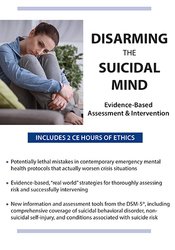





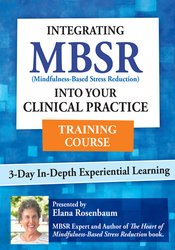
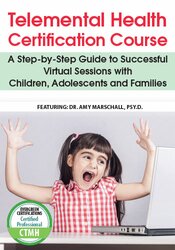
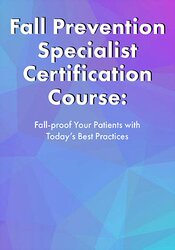
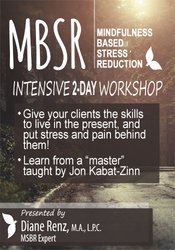
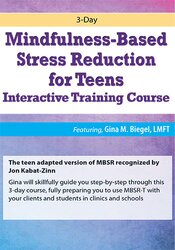
There are no reviews yet.